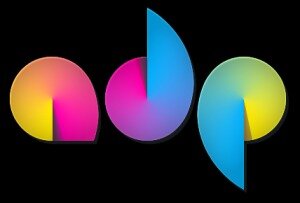What is bookkeeping? Definition, types, and best practices

The system you choose to use doesn’t need to be complicated and the ledgers should be straightforward, especially if you have just a few or no employees. The most important parts of doing your own bookkeeping are staying organized and keeping track of the details. While single-entry bookkeeping is simpler, double-entry is more thorough and less likely to produce errors. However, you want to at least include education, experience and licensing requirements in your job description. Being consistent, accurate, and minimizing errors are key characteristics that employers are seeking for this position. It is indispensable to have a knowledge of accounting and to understand how to use accounting software systems.
- As you post transactions, you need to post the information to the correct accounts in your bookkeeping system consistently.
- The single-entry bookkeeping method is often preferred for sole proprietors, small startups, and companies with unfussy or minimal transaction activity.
- Accounting is the umbrella term for all processes related to recording a business’s financial transactions, whereas bookkeeping is an integral part of the accounting process.
- By logging and keeping track of all financial transactions, you will have easy access to any financial information you might need.
Your business may post dozens of accounting transactions each week. And if you make a mistake, you’ll be able to correct it much faster. Managers need accurate data to more than 20 million jobs vanished in april, new adp report says increase sales, manage costs, and to oversee cash flow. Using basic bookkeeping principles, you can post and access information that managers need to make decisions.
How Organizations Can Positively Impact the Mental Health of Trans and Nonbinary Employees
They may work in an office environment, in a retail store, or even from home. In most cases, bookkeepers work full-time during regular business hours, although part-time and flexible schedules are also common. Now that you understand how to become a bookkeeper, you are ready to get started on your new path. Whether you are already in the bookkeeping field or just starting out, this guide can help you determine your next steps. In addition to moving up into higher-level positions, remote QuickBooks Live bookkeepers may also be able to enter into the tax domain by completing Intuit training and certification for taxes.
If you’re interested in being a freelance virtual bookkeeper, you can sign up for freelance marketplace websites to connect with potential clients. Freelance jobs can range from quick temporary projects to long-term employment. However, they may be less likely to offer training or educational opportunities. At the end of the day, you should also consider whether the consultant or team is easy to collaborate with. Since you’ll need to communicate with them on a fairly regular basis, you don’t want it to be a strained relationship.
QuickBooks Live
Here are examples of responsibilities from real bookkeeper resumes representing typical tasks they are likely to perform in their roles. An outsourced bookkeeper is a third-party professional who’s been hired to handle your finances. While the Keeper app allows you to handle your finances on your own, we also have a team of real-life tax assistants working on bookkeeping behind the app. They’re here to answer your questions and make sure you feel guided the whole way. Are you a numbers-savvy freelancer with a knack for organization and relatively simple finances? A cash flow statement provides an overview of all your cash transactions.
Intuit will also provide a webcam, headset, USB hub, Ethernet cable, backdrop, and VPN token. Your Intuit Certified Bookkeeping Professional badge can be used to show any employer or client that you have an understanding of bookkeeping and accounting. It also opens up the possibility of becoming a remote QuickBooks Live bookkeeper with Intuit.
Keep your business’ unique needs in mind when looking for a bookkeeper to find the right fit. If you're a detail-oriented individual who enjoys working with numbers, then you might consider a career as a bookkeeper. For example, note which software you want a candidate to be familiar with–including general programs that your office uses. Take your learning and productivity to the next level with our Premium Templates.
If you find someone who is a good fit for your business needs, it doesn’t matter if they are in California while you work from New York. You’ll want to create a contract that outlines details, such as deadlines, rates and expectations so that everyone is on the same page. Besides simply reviewing their LinkedIn or website, you could also find out more about how they operate their bookkeeping services during the interview process. While it might seem like an extra expense you can’t really afford, hiring a bookkeeper doesn’t have to strain your budget. In fact, it can save you a lot in costly errors, the time you could be performing other pressing tasks, and headaches.
Check out our helpful guide for deciding when is the right time for your business to invest in hiring a bookkeeper. Bookkeepers offer a literal look at where you stand financially at the moment. Accountants take that financial data and help you see the bigger picture and the path your business is on.
Bookkeeping for Your Small Business
Fortunately, your tax preparer and bookkeeper or accountant should be aware of these. What’s better is that their assistance can also often save you money on small business tax preparation. Two of the most common are single-entry bookkeeping and double-entry bookkeeping. In this article, you'll learn more about what bookkeepers do, why they’re important to a business, and how much they earn. You'll also explore how to become one and find suggested cost-effective courses that can help you gain job-relevant skills today.
- Fortunately, your tax preparer and bookkeeper or accountant should be aware of these.
- They pay payroll every month, reconcile ledgers, and submit payroll taxes.
- Posting activity to your checkbook is a single-entry accounting system.
- There’s always a demand for experienced, efficient bookkeepers in nearly every industry.
You can learn more about how much it costs to hire a bookkeeper here, with a rundown of how much you can expect to pay for the different types. Let’s start with the core tasks a bookkeeper might spend their day on. On that note, let’s take a closer look at the day-to-day responsibilities of a bookkeeper.
What does a Bookkeeper do?
Bookkeeping includes gathering financial data into a recordkeeping system and posting transactions to an accounting system. The definition often includes additional tasks to keep your business running smoothly. If you’re handling bookkeeping for your small business, you’ll work on several basic tasks.
The Intuit Tax and Bookkeeping Talent Community is a great place to find remote bookkeeping jobs and access training material. You can also find remote jobs on job board websites such as Indeed. This content has been made available for informational purposes only. Learners are advised to conduct additional research to ensure that courses and other credentials pursued meet their personal, professional, and financial goals. Though having a two-year or four-year degree isn’t always required to be hired as a bookkeeper, some companies may prefer candidates who do. While it’s not always necessary to have a degree, some companies will look for candidates with coursework in accounting.
If all your mental powers have been focused on getting your business off the ground, you might not yet fully understand what a bookkeeper does. In this guide we break down the day-to-day role of a bookkeeper, and why a good one is worth holding onto. In the meantime, though, here’s a quick summary to help you figure out which kind of bookkeeping is right for you, from the lowest maintenance to the most resource-intensive. It might also include managing employee benefits, insurance, and tax withholding. This became a point of reference for bookkeepers over the next several hundred years.
If you're organized and enjoy working with numbers, a job as a bookkeeper could be a good fit. Here’s what you can do to gain the skills necessary to get started. Below is a sample bookkeeper job description that you can customize to meet the needs of your business. The bookkeeper is generally responsible for overseeing the first six steps of the Accounting Cycle, while the last two are typically taken care of by an accountant. While there is a general overlap between the two professions, there are a few distinctions that are later discussed in this article. Let’s take a look at some of the typical responsibilities of a bookkeeper.

A QuickBooks Live bookkeeper can help ensure that your business’s books close every month, and you’re primed for tax season. Our expert CPAs and QuickBooks ProAdvisors average 15 years of experience working with small businesses across various industries. If you’re interested in becoming a QuickBooks Live bookkeeper, Intuit can provide you with the tools necessary to learn bookkeeping and accounting skills and get certified. Get started by signing up for the Intuit Bookkeeping Certification program today. Online bookkeeping services might be the exact solution you need to save both time and money. The service you decide to use depends on the needs of your business and may include extra features such as payroll or tax documents.
Standard methods of bookkeeping are the double-entry bookkeeping system and the single-entry bookkeeping system. Good bookkeeping practices are essential for a business to succeed, especially when it comes to the tax-paying season. Whether it’s updating your books or keeping in contact with your tax adviser, maintain your business’s financial records and expenses throughout the year. That way, you can be well prepared when it’s time to file taxes with the IRS.
Small Business Bookkeeping (2023 Guide) – Forbes Advisor - Forbes
Small Business Bookkeeping (2023 Guide) – Forbes Advisor.
Posted: Mon, 26 Dec 2022 08:00:00 GMT [source]
Bookkeepers are not required to have certifications or specific education unless required by a specific employer. However, completing a bookkeeping certification program can teach you basic accounting and how to perform bookkeeping tasks and has the potential to set you apart from other bookkeepers. They ensure that business financial records are up-to-date and accurate, and this helps companies make financial decisions and focus on growing their business and focus on growing their business. Therefore, there are often opportunities opening up for in-house bookkeepers, remote bookkeepers, or freelance bookkeepers. While there are a myriad of courses available for bookkeeper education and training, a good deal of bookkeepers are self-taught since there are no required certifications needed to work as one. The skills needed to become a successful bookkeeper are often acquired through working in a career in the finance industry or even by balancing your personal budgets.
